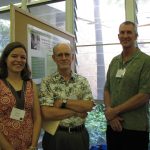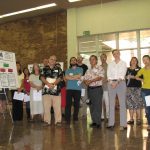Increasing First-Year Students’ (Writing) Success: An Assessment of the UH Writing Mentors Program
From fall 2007 to spring 2009, the UH Writing Mentors Program has reached approximately 1,300 students across 70 …


From fall 2007 to spring 2009, the UH Writing Mentors Program has reached approximately 1,300 students across 70 …

In Spring 2008, the English Department began assessment of student writing for the University’s Foundations Requirement in Written …

Several studies have revealed that successful mentoring affects college student retention. Also, research on attrition shows that the …

In the Spring of 2008, all students in Foundations in Writing (FW) courses were asked to select and …

This poster presents an in-process plan for assessing student learning outcomes (SLOs) in ELI 83, the English Language …